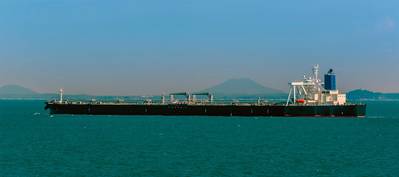Ports in China's Oil Hub Shandong Scrutinizing Old Tankers
Ports in China's Shandong province are demanding more detailed information about oil tankers that are more than 15 years old that call at their terminals, sources with knowledge of the matter said, potentially delaying the unloading of crude shipments in the world's biggest oil importer.
Last week, the maritime safety administrations at Qingdao and Rizhao, which covers the oil terminals at the port of Lanshan, notified shipping agencies to submit details on their ships' age, where a ship is flagged, insurance coverage, and any instances where the ship changed its name and ownership in the past 36 months as well as past inspection records, said a shipping agent and two traders who handle Chinese oil imports.
The sources declined to be named due to the sensitivity of the matter.
The shipping agent said the details are all new requirements that the safety administrations did not ask for before. The new documentation must be submitted five days before a vessel arrives, the sources said.
Qingdao and Lanshan are two of the top five biggest Chinese oil importing ports, according to data from Kpler. Delays at these terminals may cause disruptions to Chinese refineries that are expected to ramp up fuel output as the country recovers from the COVID restrictions of 2022. Shandong is home to numerous independent refineries known as teapots that account for up to one-fifth of China's processing capacity.
The Shandong Maritime Safety Administration told Reuters that it had not set any special inspection requirements for tankers beyond current regulations and international conventions.
The ports of Qingdao and Rizhao did not respond to requests for comment sent on Friday.
Port authorities could detain ships for days to rectify any issues, prompting shippers to divert cargoes to other Chinese ports, the sources said.
Authorities are wary of potential incidents such as the oil spill from a ship collision near Qingdao in 2021, one of the sources said.
The new requirements also follow the Qingdao maritime safety administration's inspection in April of the supertanker Titan that found more than a dozen deficiencies onboard, according to data from port state control agency Tokyo MoU and public shipping database Equasis.
The 20-year-old Titan is a Cameroon-flagged very-large crude carrier capable of carrying up to 2 million barrels of oil managed by Seychelles-based Seapalm Shipping Ltd, according to data from Refinitiv Eikon. Seapalm could not be reached for comment.
Almost all tankers hauling crude to Qingdao for independent refiners are more than 10 years old, said Vortexa analyst Emma Li.
"The Chinese port authorities realised after the recent incidents that the old tankers contain severe deficienciesand are not well covered by insurance, which potentially is problematic for the environment and port operation," she said.
The average waiting time for a tanker at Qingdao increased to more than two days on Sunday, up from less than a day a week ago, data on Refinitiv Eikon showed.
Tankers unable to furnish the required documents can divert to ports in other nearby provinces such Jiangsu, Hebei or Liaoning, the shipping agent said, as the documentation requirement is limited to Shandong.
In April, tankers calling at Shandong ports experienced delays after customs authorities stepped up checks on diluted bitumen cargoes.
(Reuters - Reporting by Muyu Xu and Beijing Newsroom; Editing by Florence Tan and Christian Schmollinger)














